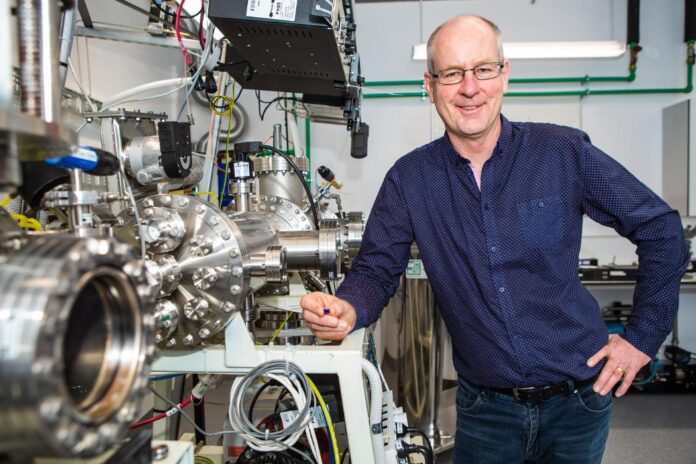Source: University of Canterbury
24 February 2021
Nanotechnology is poised to transform today’s conventional information processing systems. University of Canterbury (UC) researchers are leading the way in developing such technology, using nanoparticle networks. Te Pūtea Rangahau a Marsden, the Marsden Fund, has granted $889,000 for an exciting new study at UC to test the power of these next generation ‘neuromorphic’ computer chips. Professor Simon Brown of UC’s School of Physical and Chemical Sciences is heading the research team.
It has long been thought that the next revolution in computer technology will come through nanotechnology that rapidly processes information at the atomic scale. The prediction is that such technology – using nanoparticle networks that function in a brain-like way – will massively accelerate computational efficiency and be much more energy efficient too. As neuromorphic computing is much less power-hungry than traditional computing technologies, it could have a vital role to play in reducing the currently fast-growing global greenhouse gas emissions of ICT.
At UC, Professor Brown has been researching ways to build nano-electronic devices with a particular focus on neuromorphic or brain-like computing. A combination of experiments and simulations has revealed how brain-like network dynamics emerge at the atomic scale in percolating networks of nanoparticles.
“We are not really trying to replicate a human brain: we are trying to understand what can be achieved with complex networks that have a subset of brain-like properties. Through our research to date, we already know that our neuromorphic chips can recognise patterns. The next stage is to test their predictive potential and explore how they could be applied in the area of ‘optimisation’, for example, to solve complex logistical problems.”
Ultimately, this new approach to information processing could allow computers to do tasks that are currently impossible with traditional technologies.
“The Marsden Fund grant is absolutely crucial in enabling us to really push on with this work and show that we can do useful computing with our novel chips.”



